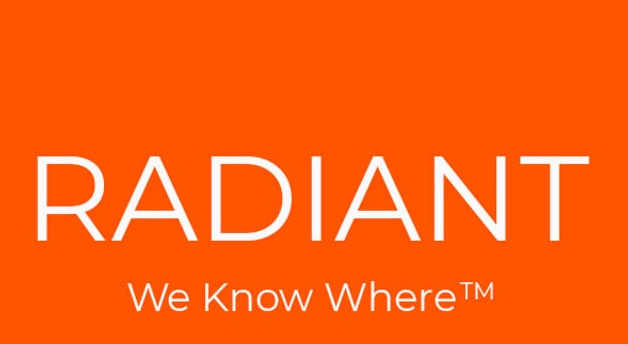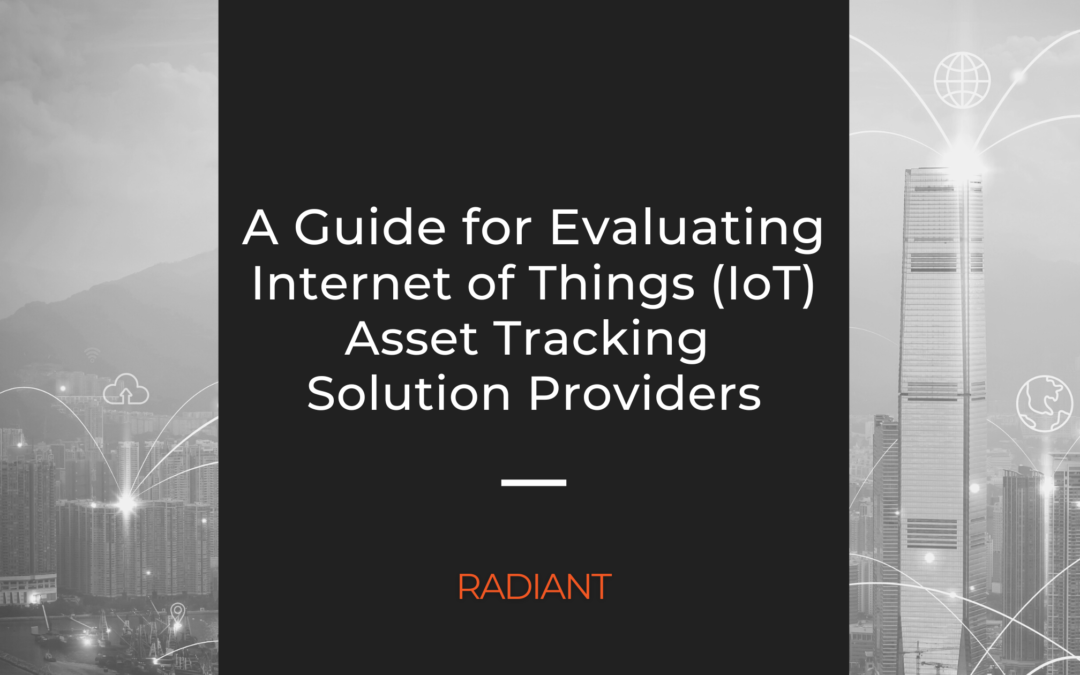When it comes to the Internet of Things (IoT), asset tracking is one of the most popular applications. After all, tracking and managing high-value assets is essential for any business. But with so many different asset tracking IoT companies in the market, how can you be sure you’re selecting the right one for your organization?
It can be difficult to know where to start when evaluating IoT asset tracking vendors. This guide will help you assess your needs and then compare providers based on those requirements. By the end of this process, you’ll be able to confidently choose an IoT asset tracking provider that best meets your organization’s needs.
What is IoT Asset Tracking?
IoT asset tracking refers to the use of internet-connected devices to track and manage physical assets. Unlike traditional asset tracking solutions, which rely on barcodes or RFID tags that require manual scanning, IoT-enabled asset tracking uses sensors and other cloud-based technologies to automatically collect real-time data about an asset’s usage, condition, and location.
By sending this data to the cloud, it can be easily interpreted via asset management software and used to improve efficiency and decision making, such as when to schedule maintenance or when to replace an aging asset. In addition, IoT asset tracking can help organizations to better track their inventory levels and optimize their supply chains through real-time location data. As the cost of sensors and other connected technologies continues to decline, IoT asset tracking is expected to become increasingly widespread in the coming years.
What are the Benefits of IoT Asset Tracking?
As the IoT continues to expand, more and more organizations are looking for ways to integrate it into their asset management strategy. There are many benefits of using IoT-enabled asset tracking, including:
– Improved Tracking and Visibility: One of the biggest benefits of using IoT asset management is that it can help improve tracking and visibility. By embedding or attaching IoT-based tracking devices, organizations can get real-time data on the location and condition of critical assets. This is crucial for keeping track of inventory levels and ensuring that assets are being used efficiently.
– Reduced Downtime: Another benefit of using IoT asset tracking is that it can help reduce downtime. By monitoring the condition of assets in real-time, organizations can proactively address maintenance issues before they cause significant problems. This helps to minimize production disruptions and keep assets operational for longer periods of time.
– Increased Efficiency: Finally, using IoT asset tracking can also help increase efficiency. By automating tasks such as inventory management and maintenance scheduling, organizations can free up staff to focus on more strategic tasks. This can help to improve overall productivity and make the most of limited resources.
Asset management is a critical part of any organization, and the benefits of using IoT are clear. By improving tracking and visibility, reducing downtime, and increasing efficiency, IoT can help organizations to optimize their asset tracking strategy and get the most out of their fixed assets.
IoT Asset Tracking Companies
IoT asset tracking companies specialize in providing solutions that use the Internet of Things to track and manage physical assets. These companies offer a variety of services, including real-time tracking, asset monitoring, and predictive maintenance. By harnessing the power of IoT technology, these companies are able to provide their clients with a wealth of data that can be used to improve asset management procedures and reduce costs.
In addition, asset tracking IoT companies often partner with other providers of IoT solutions to create end-to-end solutions that can be tailored to the specific needs of each client. As the demand for IoT solutions continues to grow, IoT asset tracking companies are poised to play a major role in transforming the way businesses manage their high-value assets.
Evaluating your Business Needs Before Beginning your Search for an IoT-Enabled Asset Tracking Vendor
When it comes to choosing an IoT asset tracking provider, it’s important to understand your own business needs first. There are a lot of different providers out there, so you need to make sure you’re choosing one that can offer the specific features and capabilities you need. Otherwise, you could end up with a system that doesn’t quite fit your business or that isn’t as effective as it could be.
So how do you go about understanding your business needs? First, take a look at your existing asset tracking processes and see where there might be room for improvement. Then, consider what kinds of things you’d like to track with IoT devices and what kinds of insights you hope to gain from the data they collect.
Once you have an understanding of your specific business needs, you can start researching different IoT asset tracking providers to find the right fit for your company.
How to Select the best IoT Asset Tracking Solution Provider for your Business
When it comes to tracking high-value assets, there are a lot of factors to consider. But with the right IoT company, asset tracking can be easy, accurate, and secure. Here are some important factors to consider when evaluating IoT asset tracking vendors:
- Consider Scalability: As your business grows, you’ll need an asset management solution that can scale along with you. Make sure to choose a provider that offers a flexible IoT platform that can accommodate future growth.
- Reliable Support: When looking for an IoT-enabled asset tracking solution vendor, it’s important to consider the level of support that they offer. Make sure to choose a provider that offers 24/7 customer support in case you encounter any problems.
- Ease of Use: Another important factor to consider is the user experience. After all, if the IoT-enabled asset tracking solution is difficult to use, your employees are likely to avoid using it or give up on it altogether. Make sure to test out any potential solutions yourself before making a decision.
- Evaluate Security: With sensitive data being exchanged between devices, security is a critical consideration when choosing an IoT-enabled asset tracking system. Make sure to select a provider that offers robust security features to protect your data.
- Check for Integrations: Another important factor to consider is whether or not the IoT asset tracking solution you’re considering integrates with your existing systems. This is important for two reasons: first, it will make it easier to get started with the solution; and second, it will ensure that you don’t have to duplicate data in multiple places.
- Consider the Company’s Experience: Last but certainly not least, it’s imperative to consider an IoT asset tracking solution provider’s experience. Make sure to ask about the provider’s past projects and clients to get a sense of their track record. You should also ask about the provider’s team to ensure that they have the necessary expertise to properly implement your asset management solution.
Evaluating IoT asset tracking vendors can be a complex process, but if you keep these six factors in mind, you’ll be well on your way to finding a solution that meets your needs.
Key Questions to Ask IoT Asset Tracking Vendors
Once you have narrowed down the field, it’s important to speak with prospective IoT asset tracking companies and demo their solutions. Here are some key questions to ask prospective vendors when evaluating IoT asset tracking solution providers:
- What type of assets can the solution track?
- What specific IoT technologies does the system use?
- How accurate is their IoT tracking app?
- What is the asset tracking IoT device read range?
- How often does the solution need to be calibrated?
- What is the battery life of the asset trackers?
- How much will it cost to deploy and support the system?
- Do they offer managed services?
- Is the solution compatible with other existing systems?
- What kind of location data will be collected? And how will it be used?
- What security and privacy measures are in place?
- What happens if there is a power outage or other interruption in service?
By asking these questions, you can get a better sense of what each vendor has to offer, and how their IoT-enabled asset tracking solution would work for your specific needs.
The Bottom Line
While there are many factors to consider when selecting an IoT asset tracking vendor, the ones we’ve outlined here should provide a good starting point. By exploring each of these areas in detail and requesting demos from potential asset tracking providers, you can be sure that you select the right partner for your needs. At Radiant, we believe our IoT-enabled asset tracking solution is one of the best in the market. We invite you to explore our solutions and request a demo today to see how we can help your business track its critical assets more efficiently and improve ROI.
Last Updated on January 26, 2023 by Radiant

